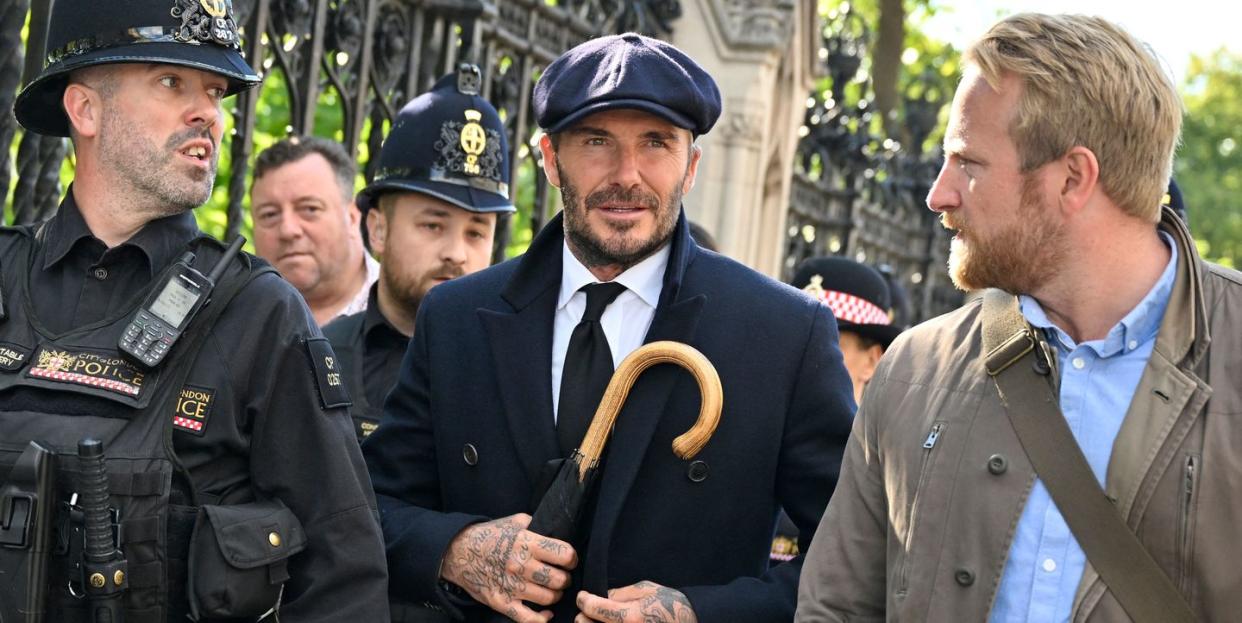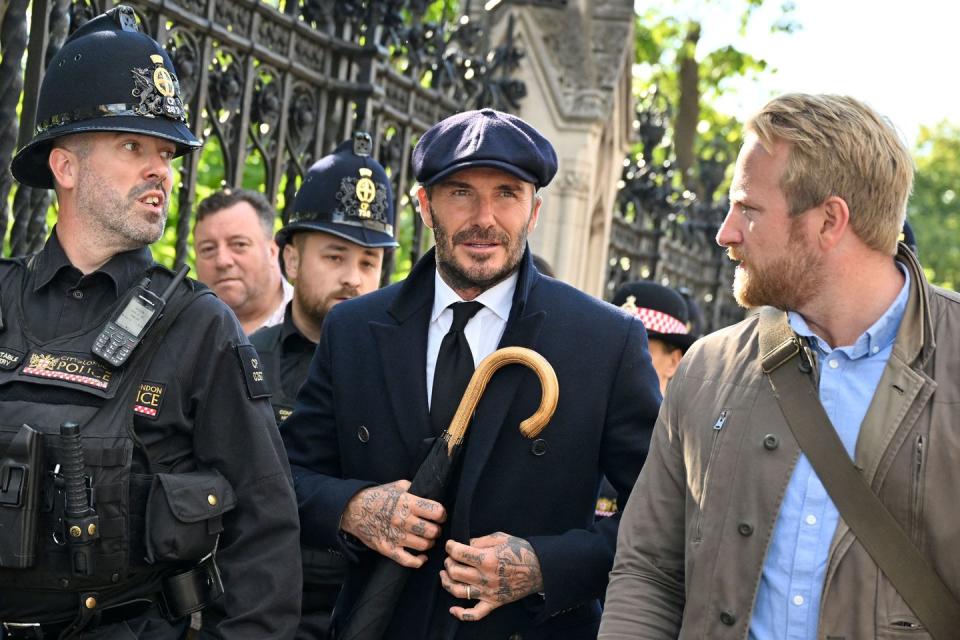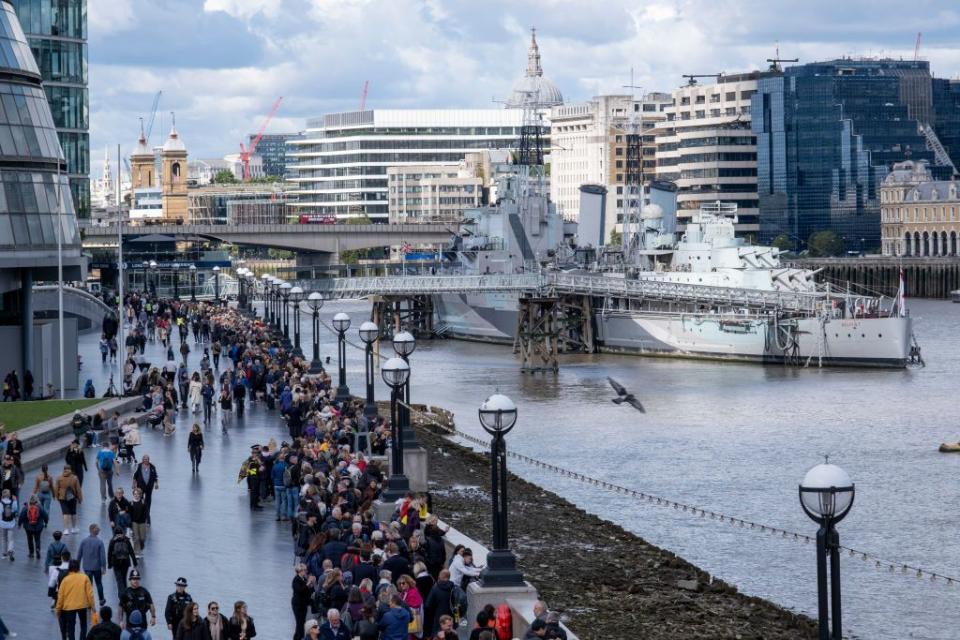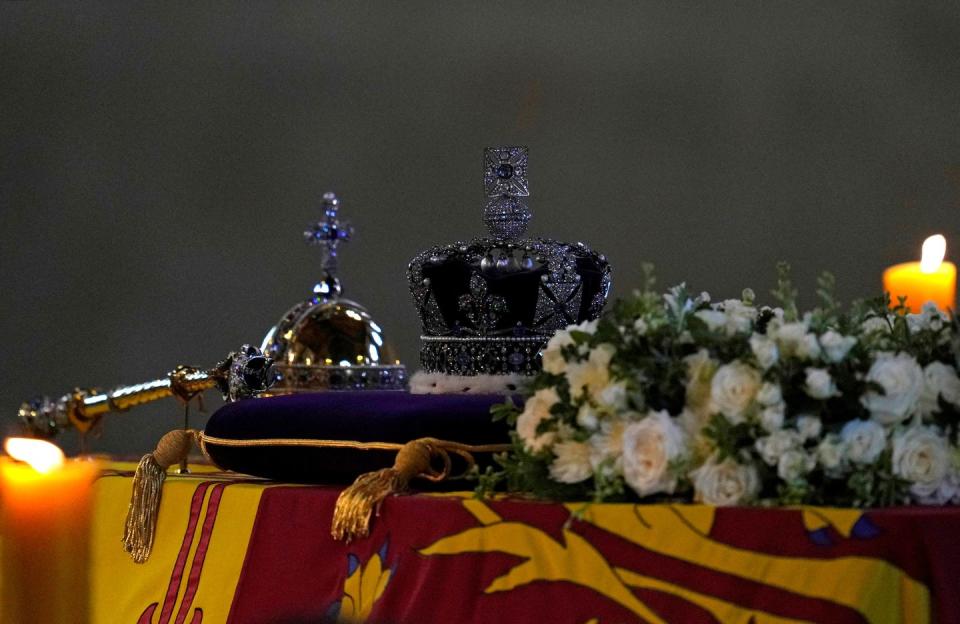David Beckham Waited 12 Hours to See Queen Elizabeth II Lying in State


Queen Elizabeth II's lying-in-state began on Monday, before the Queen's coffin had even arrived at Westminster Hall. "The world has not seen a funeral like this,” London Mayor Sadiq Khan said, adding, “We expect to see over the course of the next few days hundreds of thousands of people personally pay their respects to her majesty the Queen."
On September 14, the Queen was transported in a procession from Buckingham Palace to Westminster Hall as thousands of onlookers watched. Since the Hall opened to the public for viewing for 24 hours a day, the line of those waiting to pay their respects has begun to stretch out into historic lengths.
It has now grown to be more than five miles (eight kilometers) with a wait time of over 14 hours since this morning. In an update from the queue tracker on The Department Digital, Culture, Media, and Sport (DCMS), the expected waiting time for the Queen's lying-in-state has gone over 24 hours. It may be difficult to leave the line, even to use the bathroom or to eat, and you can expect to be standing there for almost a day, which is a physically taxing prospect. However, this hasn't seemed to dampen the spirits of those in line.

Even internationally renowned soccer star, David Beckham, took his turn waiting in line with the rest of the country's mourners. Beckham, who was spotted in line on Friday morning, waited for more than 12 hours in line to approach the Queen's coffin in Westminster Hall.
Beckham joined the line in order to share a sense of community with others. "You know something like this today is meant to be shared together," Beckham said to reporters in line. He was spotted buying donuts and sharing them with his fellow queuers.

The scale of the queue is truly historic, now stretching across most of Central London. Although the line is a symbol of grief for many in the country, there are also people expressing their right to protest the monarchy, who are getting arrested. According to the country's domestic law, the right to protest is protected. On Monday morning, the Metropolitan Police of London's Deputy Assistant Commissioner Stuart Cundy said "the public absolutely has the right to protest and we have been making this clear to all officers involved in the extraordinary policing operation currently in place and we will continue to do so."
This statement was released in response to a video that began to circulate on September 12, of police officers moving a woman holding up a "Not My King" sign in front of the Palace of Westminster. Many other arrests of protestors have been publicized in this week of national mourning. Symon Hill was arrested in Oxford when, in response to a local proclamation of King Charles III's accession, he yelled out "who elected him?" Hill spoke to CNN about his arrest, expressing his disbelief at how quickly he was detained after speaking freely in public.
Anti-monarchy sentiment is as old as the monarchy. The death of Queen Elizabeth II has stirred up outpourings of grief, but along with it, long held tensions with the country's imperialist past have gained momentum. Protests have taken shape not just domestically, but internationally as well. The South African political party, Economic Freedom Fighters, shared a statement that said "we do not mourn the death of Elizabeth, because to us her death is a reminder of a very tragic period in this country and Africa's history." There have been renewed calls to return the diamond the Great Star of Africa or Cullinan I, which now rests on the Queen's scepter. The gem was mined in South Africa 1905 and seized by colonial authorities.
After the queue is cleared and the national mourning period ends, questions of how the country will come to terms with its continuance of imperialist traditions and its colonial history will linger. The United Kingdom now stands at a precipice of a brand new era, but only time will tell how this new era will be defined.
You Might Also Like


